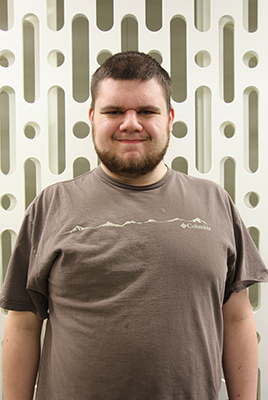Joseph

Engineering Technology
I’ve always loved tinkering around with technology. My high school had a friendly, small, and inclusive student body. I volunteered in the district’s “Bridging The Gap” program, where I tested surplus computers and taught people how to set them up. I liked this volunteer position because it gave me a taste of what a work ethic feels like, and gave me confidence that I could use my skills in a more formal setting.
I earned the “Technology Superstar” award for working as an extra tech hand for my school. That was a great experience because it allowed me to work on the copiers, projectors, and computers that I previously only dreamed of messing with. I also enrolled in Running Start, which greatly eased the transition to college. The experience was a nice middle between high school and college; I still had a familiar environment and available help from home, but the courses were full-blown college-level courses on a schedule that worked very well for me.
The event that really motivated me to pursue a STEM degree was getting into a college-preparation program for students with disabilities called DO-IT Scholars. I got to live on a university campus, learn valuable studying skills, and create a community of people who understood me. During my second summer on campus, I really appreciated the engaging laboratories, career-focused workshops, and networking events—all of which helped me get into Central Washington University.
At first, pursuing an electronics engineering technology degree at a four-year university felt like one obstacle after another. Fortunately, after learning how to use disability services and jumping over some of the early hurdles, things began improving.
During college, I participated in a National Science Foundation-funded program called AccessSTEM that helped me secure an internship. At the internship, I developed a microcontroller-based device that allowed single-switch and two-switch assistive devices to use a code to emulate a keyboard. I aimed to make something both affordable and versatile for people who can’t use a keyboard. I felt like my project could make a difference for someone in the world. The experience gave me the confidence that college had prepared me well for a computer engineering career.
My journey has been difficult, and I have experienced many barriers. Often other’s lack of awareness of my disability has caused barriers in my career pursuits, but I still look forward to finding a place that’s a good fit for me and settling into a career.